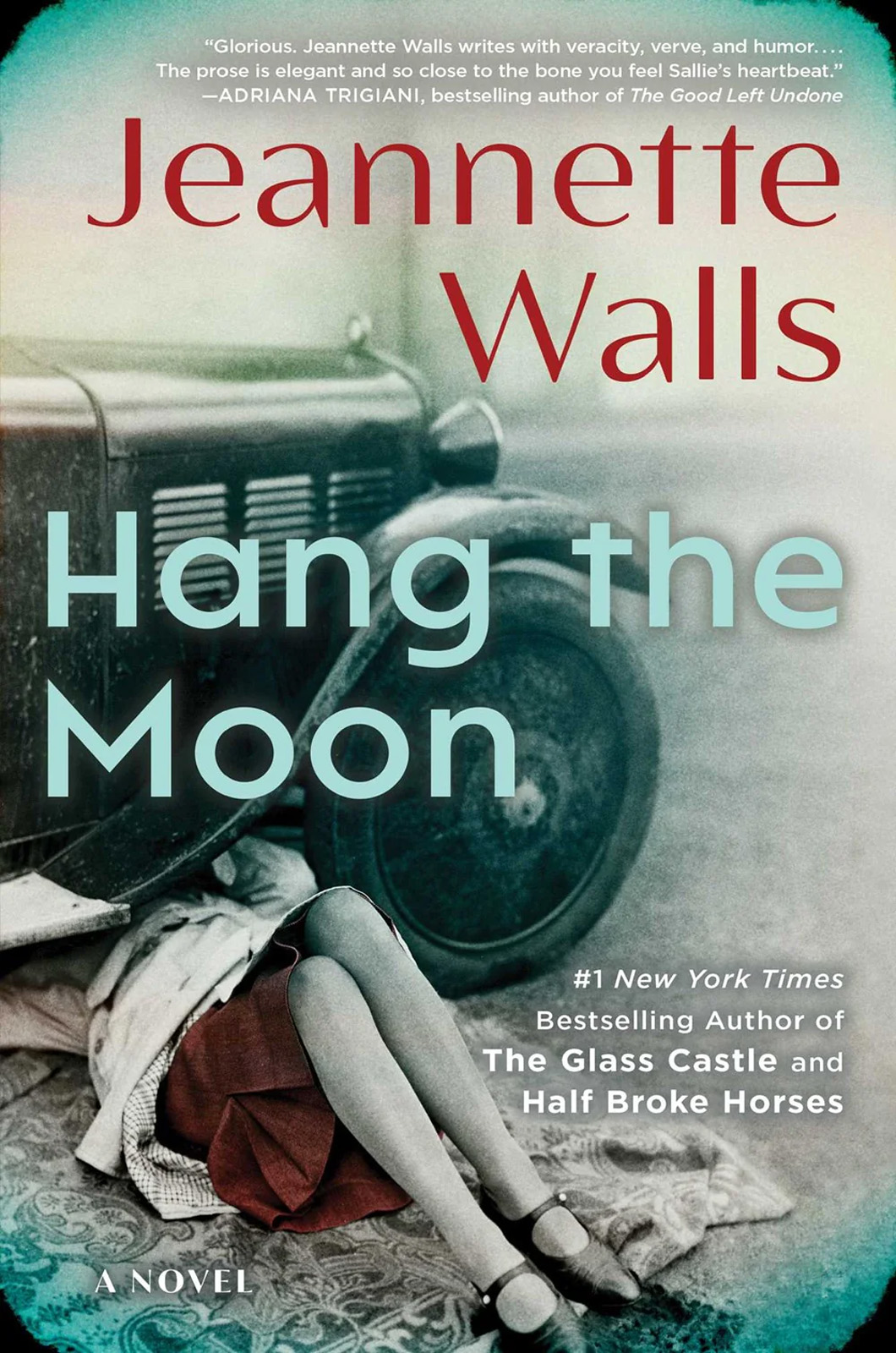For Jeannette Walls, truth is at the heart of writ ing, from her journalism and wildly-successful debut memoir to her most recent novel, Hang the Moon.
“What is our goal as storytellers? Get to the truth,” she said. “Truth seeking is chasing the rainbow, but you try to get as close as you can to the truth . . . the goal in journalism and a novelist is to get as close to the truth as possible.”
Ms. Walls grew up in poverty, moving from town to town across the U.S. as a child. She made her way to New York City in the 1980s and attended Barnard College, which she funded through scholarships and grants. After college, she built a career as a gossip columnist for New York Magazine, Esquire, MSNBC and other publications. She covered stories about Paris Hilton, Britney Spears and the Brad Pitt and Jennifer Aniston divorce.
But one evening, as she left her Park avenue apartment for a party, she looked out of her taxi window and saw her mother rooting through a dumpster. The image became the iconic opening scene of Ms. Walls’s memoir, The Glass Castle. Since its publication in 2005, it has been a New York Times bestseller for 474 weeks and sold seven million copies in the U.S. alone, according to the publisher. Her subsequent books are all loosely based on family stories, until Hang the Moon.
Her new novel navigates the historical fiction terrain, using Prohibition as the backdrop. Its protagonist is Sallie Kincaid, the oldest daughter of a larger than life community figure known as the Duke, who is the manager of Kincaid Holdings, a family business that includes bootlegging.
When the Duke dies, Sallie is left in charge of her family’s home and Kincaid Holdings.
Some readers have asked Ms. Walls if the Duke was based on Logan Roy from the television show Succession. But the book was written before the show was released. Ms. Walls said that parts of the Duke could have come from Rupert Murdoch.
Ms. Walls said the subject of Prohibition was an easy choice for her, having first heard about it as a little girl from her mother when they lived in Battle Mountain, Nev.
She recalled seeing a whiskey bottle filled with flowers that had a sticker on it saying “Federal Law Forbids Sale or Reuse of this bottle.” She worriedly asked her mother if they would get arrested for reusing it as a vase. Her mother explained that the bottle came from a time in U.S. history when the sale and distribution of alcohol was prohibited.
Ms. Walls was struck by the idea of a world in which no one could drink.
“My dad was a raging alcoholic,” she said. “I thought [Prohibition] sounded like a wonderful time.”
While researching the book, she also learned how contentious the time was.
“It was a time that was a coming of age for America, just as it was a coming of age for Sallie Kincaid,” Ms. Walls said. “It was a scary time. America was trying to figure out how we move forward, and figure out who we are as a country.”
The character of Sallie Kincaid was inspired by a woman named Willie Carter Sharpe, a rum runner who led a caravan of cars that distributed moonshine across Franklin County, Va., which was known as the wettest country in the U.S. at the time. Sallie teaches herself how to shoot a gun, race a car through the Blue Ridge Mountains and manage a conglomerate, pushing through contemporary societal restrictions for women.
“A shocking number of women were making liquor,” Ms. Walls said. “Whiskey making was a money-making operation that gave women some power and influence. It was usually up in the hills.”
The business gave some of these women financial independence, which Ms. Walls does not take lightly. “In my personal experience, money is about independence . . . . Otherwise, you’re at the whim of whoever has the money.”
Ms. Walls was also drawn to the era because of its transformative technology, particularly with regard to cars and electricity. The mass distribution of cars allowed women to commute at will without the help of a man to hitch up a horse, and electrification changed how households and workplaces operated. In Hang the Moon, Sallie Kincaid engages with all of it.
“Post-World War I, it is hard to understand how transformative the average technology available to middle-class Americans was,” Ms. Walls said. “Being able to switch on a light, we take it for granted. I grew up for long periods without electricity. I will never seek to be amazed by it.”
Over the course of Hang the Moon, Sallie goes from being cast out of the family to leading the family business. For Ms. Walls, such survival is at the heart of storytelling.
“Anthropologists believe that’s how storytelling started, as a way for people to share ‘This is how I survived. This is how I endured.’ This is a big reason why we turn to entertainment. It is about triumph over circumstance . . . . To me that’s what it’s all about.”
Jeannette Walls takes part in a panel discussion at 12:30 p.m. on August 5, and a conversation with Alexandra Styron at 10:30 a.m. on August 6.








Comments
Comment policy »